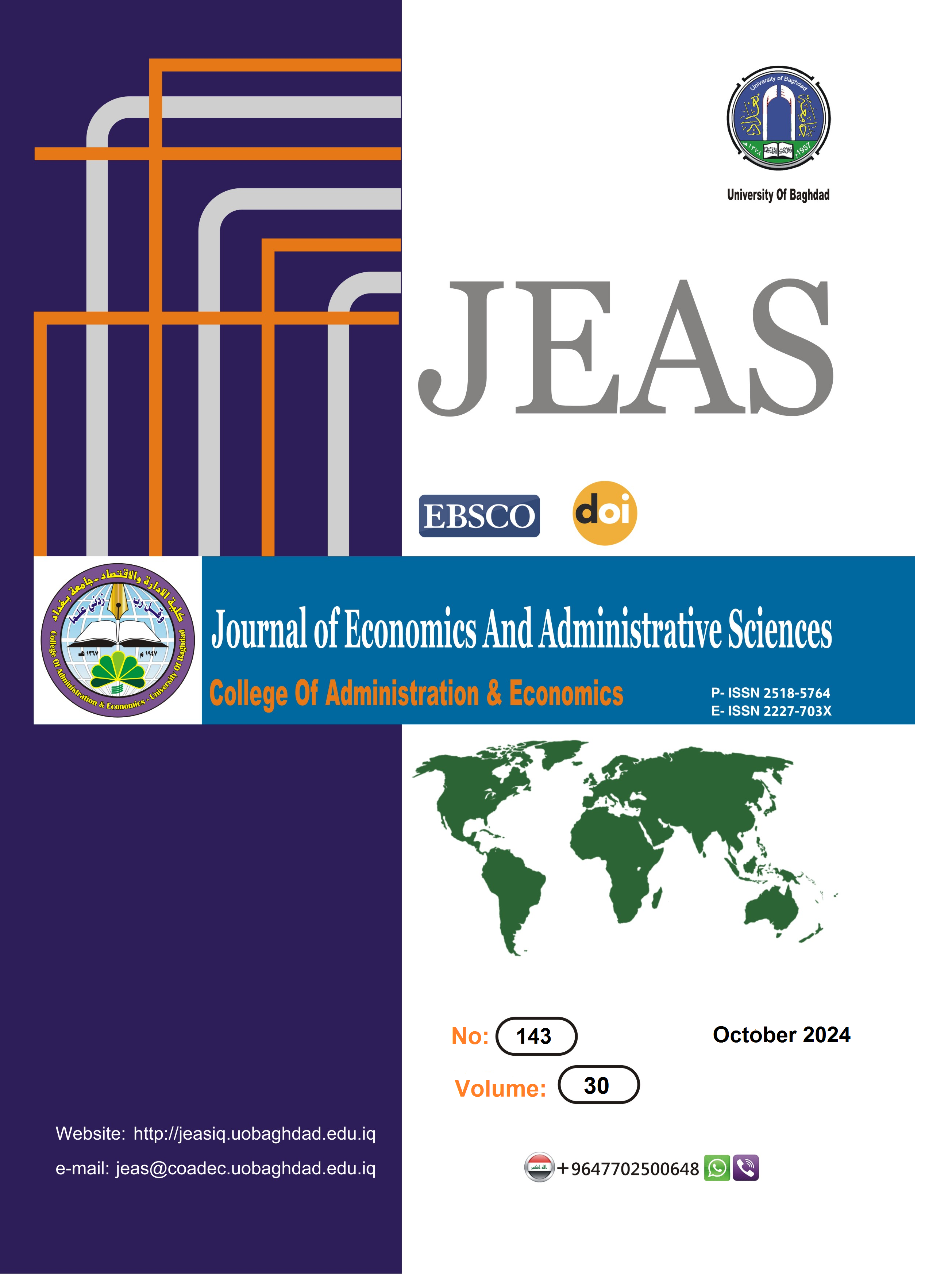The Impact of Trade Openness on the Reality Industry in Iraq for the Period (2004-2022)
DOI:
https://doi.org/10.33095/1s0x8d66Keywords:
The Iraqi industrial sector, Trade openness policy, Industrial contribution to GDP, Imbalance in the structure of exports and imports .Abstract
Iraq is one of the prominent countries that used to have important industries and enjoyed consumer acceptance, as well as competitiveness and presence in regional and global markets. However, after 2003 and due to trade liberalization, there was a general weakness in the structure of the Iraqi economy. This directly affected the reality of the Iraqi industrial sector, leading to the entry of goods and products from all over the world. With the increase in population and government expenditures, which relied on commodity imports to meet local needs, all aspects of industry in the country were eliminated. The importance of research lies in shedding light on the role of international trade (import and export) in global economies, highlighting the shortcomings in trade policy management, demonstrating the impact of trade openness on the industrial sector's contribution to economic development, and the need for realistic measures to rescue this vital sector from deterioration in Iraq. And the problem of the research is based on the direct negative impact of trade liberalization policy on the reality of the industrial sector in the country. Increased reliance on foreign sources to meet local economic needs is attributed to the deficiencies, backwardness, and stagnation of the production apparatus, rendering it unable to meet total domestic demand. The aim of the research is to shed light on the role of foreign trade in global economies and to clarify the shortcomings in trade policy management, as well as the extent of the impact of trade liberalization on the reality of the industrial sector in achieving economic development. The research found that the industrial sector in Iraq was negatively affected throughout the period (2004-2022) due to the compulsory trade liberalization policy, which led to the shutdown of factories and plants as a result of the low prices of imported goods.
Paper type Research paper.
Downloads
Published
Issue
Section
License
Copyright (c) 2024 Journal of Economics and Administrative Sciences

This work is licensed under a Creative Commons Attribution-NonCommercial-NoDerivatives 4.0 International License.
Articles submitted to the journal should not have been published before in their current or substantially similar form or be under consideration for publication with another journal. Please see JEAS originality guidelines for details. Use this in conjunction with the points below about references, before submission i.e. always attribute clearly using either indented text or quote marks as well as making use of the preferred Harvard style of formatting. Authors submitting articles for publication warrant that the work is not an infringement of any existing copyright and will indemnify the publisher against any breach of such warranty. For ease of dissemination and to ensure proper policing of use, papers and contributions become the legal copyright of the publisher unless otherwise agreed.
The editor may make use of Turtitin software for checking the originality of submissions received.


























